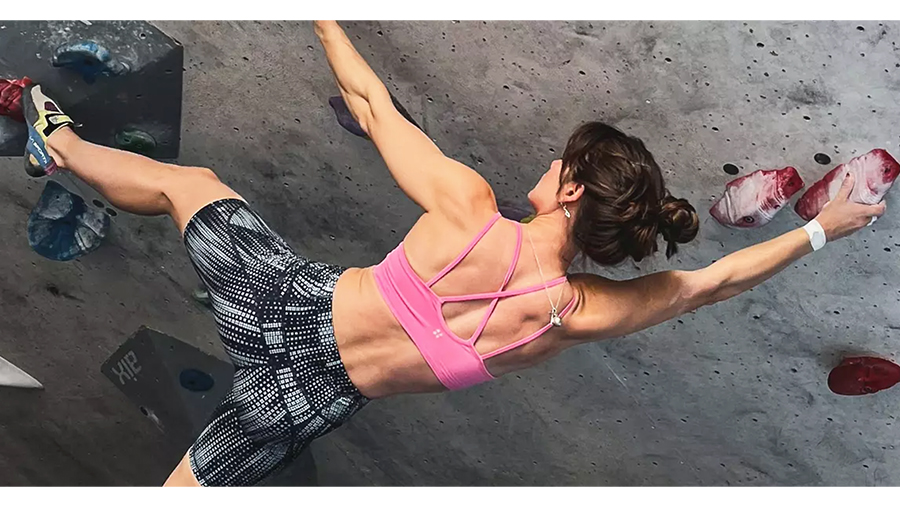Wolverine World Wide, Inc. reported second-quarter earnings topped Wall Street estimates in the second quarter ended July 2, but sales fell short due to supply chain disruption. Guidance for the year was reduced due to expectations of higher promotional activity amid elevated inventories in the back half of the marketplace.
Brendan Hoffman, Wolverine Worldwide’s President and Chief Executive Officer, said, “Despite a slowdown in June shipments, we are pleased with delivering record organic revenue in the quarter. We are encouraged by 14 percent growth in our largest brand Merrell, and 45 percent growth in our international business. We faced unplanned headwinds related to elevated customer inventory, a stronger U.S. dollar and some lingering supply chain delays, but our operating margin was better than expected in the quarter. While we continue to expect sequential growth acceleration in the second half, we now have a revised outlook for the back half of this year that assumes higher promotional activity and elevated inventory in our wholesale channels. During the second quarter, we made very meaningful progress on the important strategy work we started earlier in the year and remain excited about the future growth potential of our brands.”
Second Quarter Results
Revenue of $713.6 million represents growth of 12.9 percent versus the prior year and 25.5 percent versus 2019. Excluding Sweaty Betty, revenue was $666.2 million, a record for the quarter and up 17.2 percent compared to 2019. The international business was especially strong, up 45.3 percent to $295.2 million, including Sweaty Betty and up 26.4 percent to $256.8 million excluding Sweaty Betty. Direct-to-Consumer revenue, including Sweaty Betty was up 21.1 percent to $166.2 million, and excluding Sweaty Betty was down 8.2 percent to $125.9 million. Sales of $713.6 million were below Wall Street’s consensus estimate of $737.4 million.
In the Michigan Group segment, which includes Merrell, Cat, Wolverine, Chaco, Hush Puppies, Bates, Harley-Davidson, and Hytest, sales grew 10.0 percent to $389.7 million from $354.4 million. In the Boston Group, including Sperry, Saucony, Keds, and the Stride Rite kids licensed business, sales were down 1.6 percent to $253.9 million. Other revenue reached $70.0 million against $19.5 million, reflecting the addition of Sweaty Betty.
Among key brands, sales of Merrell rose 14.0 percent to $203.6 million. Saucony’s sales improved 7.2 percent to $135.5 million. Sperry’s sales dropped 13.4 percent to $70.1 million. Wolverine’s revenues were up 16.3 percent to $57.7 million. Sweaty Betty, acquired in August 2021, had sales of $47.4 million in the quarter.
Gross margin of 43.0 percent was above expectations, mostly due to lower-than-expected closeout sales.
Selling, General & Administrative expenses of $139.2 million include a $90.0 million gain related to the sale of the Champion trademarks that occurred on June 30. Adjusted SG&A expenses of $228.5 million or 32.0 percent of revenue were ten basis points higher than the prior year, including Sweaty Betty.
Net income was $124.6 million, or $1.53 a share, against $44.7 million, or 53 cents, a year ago. On an adjusted basis, EPS slid 1.5 percent to 66 cents a share from 67 cents a year ago. Adjusted EPS of 66 cents was above Wall Street’s consensus estimate of 64 cents.
Q2 2022 adjustments reflect income from the sale of the Champion trademarks and costs associated with Sweaty Betty integration. Q2 2021 adjustments reflect air freight charges related to production and shipping delays caused by the COVID-19 pandemic and environmental and other related costs net of recoveries.
On a non-GAAP organic basis (excluding Sweaty Betty), total sales were up 5.4 percent to $666.2 million. Organic Gross Margin eroded 220 basis points to 42.3 percent from 44.5 percent a year ago. Organic operating margin was down 40 basis points to 12.2 percent from 12.6 percent a year ago. Organic EPS was flat at 67 cents.
Balance Sheet
Inventory at the end of the quarter was $639.5 million, up 93 percent versus the prior year. While factory capacity and delivery performance have improved, logistics lead times and volatility still impact its business.
Excluding Sweaty Betty, organic inventory increased 80 percent or $264.9 million compared to last year when inventory levels were abnormally low. One-third of this increase, nearly $95 million, relates to much higher in-transit inventory. Organic inventory versus 2019 is up 47 percent. Approximately 85 percent of this inventory is expected to be sold through primary wholesale, digital and direct-to-consumer channels later this year or during the 2023 selling seasons. Wolverine plans to liquidate the remaining excess inventory pragmatically over the next several months.
Total debt at the end of the quarter was $1,227.4 million. Total liquidity, including cash and available borrowings under the company’s revolving line of credit, was approximately $700.0 million.
Share Repurchases
During the second quarter, approximately 2.4 million shares were repurchased at an average price of $19.47 per share. At the end of the quarter, the company had nearly $367 million available under its board-approved share repurchase plan.
Full-Year 2022 Outlook
“The company has performed well in the first half of 2022. Several factors have impacted our outlook for the second half, including certain negative trends that accelerated in June,” said Mike Stornant, executive vice president and chief financial officer. “We now expect a stronger U.S. dollar, inflation, excess inventory across channels and changing consumer behavior will have a more meaningful negative impact on our industry and the company for the remainder of the year. We are adjusting our full-year outlook accordingly.”
- Revenue is expected to be in the range of $2.740 billion to $2.790 billion, representing a growth of approximately 14.0 percent to 16.0 percent. Foreign currency exchange rate fluctuations are expected to have approximately $72.0 million (or 3.0 percent) negative impact on full-year reported growth, previously, sales were expected to range between $2.775 billion to $2.850 billion, representing growth of approximately 15.0 percent to 18.0 percent.
- Diluted earnings per share are expected to be between $2.62 to $2.72 and adjusted diluted earnings per share are expected to be between $2.10 to $2.20, representing a growth of 0.5 percent to 5.3 percent. Foreign currency exchange rate fluctuations are expected to have a $0.11 negative impact on full-year EPS. (Previously, EPS was expected in the range of $2.30 to $2.45 and adjusted EPS between $2.50 to $2.65, representing growth of 19.4 percent to 26.5 percent.)
- Gross margin is expected to be approximately 42.5 percent, assuming an increased promotional and markdown cadence and a higher mix of lower-margin international third-party sales in the back half of the year. (Previously, gross margin was expected to be approximately 43.0 percent.)
- Operating margin is expected to be approximately 11.5 percent and adjusted operating margin is expected to be approximately 9.5 percent, reflecting increased promotional costs and higher inventory handling costs, previously operating margin was expected to be approximately 10.2 percent, and the adjusted operating margin is expected to be approximately 11.0 percent, up approximately 35 bps versus 2021.)
- The effective tax rate is expected to be approximately 21.5 percent, previously 21.0 percent.
- Diluted weighted average shares are expected to be approximately 80.0 million, previously, 81.4 million.
This outlook assumes no meaningful deterioration of current market conditions related to the impact of the COVID-19 pandemic, ongoing inflationary pressures, supply chain disruptions, changes in consumer behavior and confidence, and geopolitical tensions.
Wolverine World Wide’s portfolio includes Merrell, Saucony, Sweaty Betty, Sperry, Hush Puppies, Wolverine, Keds, Chaco, Bates, Hytest, and Stride Rite. Wolverine Worldwide is also the global footwear licensee of Cat and Harley-Davidson.
Photo courtesy WWW/Sweaty Betty













